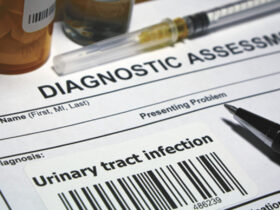By Cynthia Perthuis, CDP, CADDCT, CSA
 November marks National Alzheimer’s Awareness Month, a time dedicated to raising awareness about a disease that affects millions of people worldwide. By 2050 it is estimated that 153 million people will be diagnosed with Alzheimer’s disease. It is important for everyone to understand what Alzheimer’s is and is not and the risk factors associated with the disease. We hope to promote understanding, compassion, and support for those living with Alzheimer’s and their families; as well as critical information for you to reduce your risk of getting this horrible disease.
November marks National Alzheimer’s Awareness Month, a time dedicated to raising awareness about a disease that affects millions of people worldwide. By 2050 it is estimated that 153 million people will be diagnosed with Alzheimer’s disease. It is important for everyone to understand what Alzheimer’s is and is not and the risk factors associated with the disease. We hope to promote understanding, compassion, and support for those living with Alzheimer’s and their families; as well as critical information for you to reduce your risk of getting this horrible disease.
What Alzheimer’s Is:
. A Brain Disorder: Alzheimer’s is a disease of the brain, leading to the accumulation of abnormal protein deposits, which disrupt the communication between brain cells, resulting in cell death.
. Progressive: Alzheimer’s is a progressive disease, meaning symptoms worsen over time. It advances through stages, starting with mild memory problems and eventually leading to severe cognitive impairment.
. Not a Normal Part of Aging: While memory changes are common with aging, Alzheimer’s is not a typical part of growing older. It is a distinct disease, and not all elderly individuals will develop Alzheimer’s.
What Alzheimer’s Is Not:
. A Natural Part of Aging: Age-related memory changes are normal. Forgetting the name of an acquaintance or where you left your keys occasionally does not necessarily indicate Alzheimer’s. If you forget something and then later remember that you forgot, that is indication you do not have Alzheimer’s.
. A Transient Condition: Alzheimer’s is not a temporary condition that can be treated and cured. It is a chronic, long-term illness with no known cure. Prior to an Alzheimer’s diagnosis, many patients are diagnosed with Mild Cognitive Impairment (MCI). Several studies have reported that symptoms of MCI can be reversed through diet, exercise, proper sleep habits and social activities.
. Solely About Memory Loss: While memory loss is a hallmark symptom of Alzheimer’s, it also affects cognitive abilities, behavior, and personality. Individuals may experience changes in mood, judgment, and reasoning, among other symptoms.
Risk Factors for Alzheimer’s
Understanding the risk factors associated with Alzheimer’s is essential, as it helps you make informed decisions to mitigate those risks. While some risk factors cannot be changed, others can be influenced through lifestyle choices.
. Age: The most significant risk factor for Alzheimer’s is age. The risk increases substantially after the age of 65, and the prevalence continues to rise with advancing age.
. Family History: Individuals with a family history of Alzheimer’s are at a slightly higher risk of developing the disease. While it may have a genetic component, it is not guaranteed that someone with a family history will develop Alzheimer’s.
. Genetics: Certain gene mutations, such as those related to the APOE gene, are associated with an increased risk of Alzheimer’s. However, having these genes does not guarantee that an individual will develop the disease.
. Down Syndrome: People with Down syndrome are at a higher risk of developing Alzheimer’s, often at an earlier age.
. Cardiovascular Health: Conditions like hypertension, heart disease, diabetes, and high cholesterol can increase the risk of Alzheimer’s. Maintaining good heart health may lower this risk.
. Lifestyle Factors: Healthy lifestyle choices, such as regular physical activity, a balanced diet, and mental stimulation, may help reduce the risk of Alzheimer’s. Additionally, avoiding smoking and excessive alcohol consumption can contribute to a healthier brain.
As we observe National Alzheimer’s Awareness Month, it is essential to understand what Alzheimer’s is and is not, recognize the risk factors, and be aware of the early warning signs. By increasing our knowledge and awareness of this debilitating disease, we can offer better support to those affected and work towards a future with improved treatments and, hopefully, a cure. Educating ourselves and others about Alzheimer’s is the first step in making a difference in the lives of those living with this condition and their families.
If You Suspect a Loved One Has Alzheimer’s
If your loved one is displaying signs of Alzherimer’s, it is important to bring your concerns to a physician. Unfortunately, 97% of physicians admit to waiting for family members to raise the question of Alzherimer’s or dementia according to the Alzheimer’s Association. Do what you can do to let your doctor know in advance that you suspect your loved one is showing symptoms. It is important to have a physician check your loved one because there are many medical conditions which can mimic Alzheiemr’s. Often, these conditions are treatable. For example, urinary tract infections, depression, and grief can mimic Alzheimer’s.
If your loved one’s condition is such that you can no longer take care of them on your own or you are considering alternative ways to care for them, please call us at (239) 330-2133. We are trained to assess the situation and provide guidance on your next steps.
239-330-2133 | www.scanyfl.com





